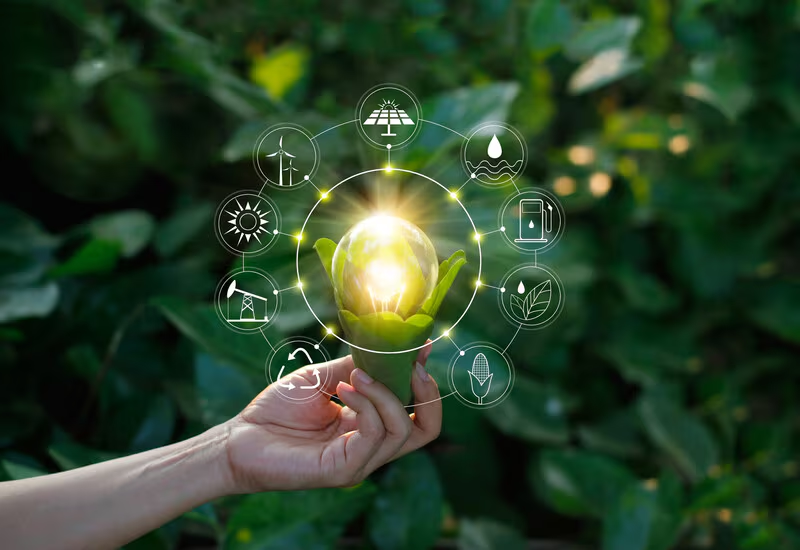Introduction
Green technology, or green tech, refers to the application of technology aimed at reducing environmental impact and promoting sustainability. As concerns about climate change and resource depletion grow, innovative technological solutions are playing a crucial role in protecting the planet. This article explores how green tech is helping the environment by improving energy efficiency, reducing pollution, and supporting sustainable practices.
1. Renewable Energy Innovations
One of the most significant contributions of green technology is the advancement of renewable energy sources such as solar, wind, and hydropower. Technological improvements in solar panels, wind turbines, and energy storage systems have made renewable energy more affordable and efficient. These innovations reduce dependence on fossil fuels, lowering greenhouse gas emissions and combating climate change.
2. Smart Energy Management
Green tech includes smart grids and energy management systems that optimize energy consumption. These systems use sensors, AI, and IoT devices to monitor and regulate electricity usage in real-time, reducing waste and improving efficiency in homes, businesses, and cities. Smart meters enable consumers to track their energy use and make informed decisions to conserve resources.
3. Sustainable Transportation Solutions
Electric vehicles (EVs), hydrogen fuel cells, and advanced battery technologies are transforming the transportation sector. Green technology promotes cleaner alternatives to traditional combustion engines, significantly cutting down air pollution and carbon emissions. Additionally, innovations in public transit and shared mobility platforms contribute to reducing traffic congestion and environmental impact.
4. Waste Reduction and Recycling Technologies
Technology is improving waste management through enhanced recycling processes, waste-to-energy conversion, and biodegradable materials. Automated sorting systems and AI-powered recycling robots increase the efficiency and accuracy of recycling operations. Furthermore, innovations in packaging and product design reduce waste generation from the source.
5. Precision Agriculture and Water Conservation
Green tech is revolutionizing agriculture with precision farming tools that use drones, sensors, and data analytics to optimize crop yields and resource use. These technologies help farmers apply water, fertilizers, and pesticides more efficiently, minimizing environmental harm. Water conservation technologies, including smart irrigation systems, are critical in addressing water scarcity issues.
6. Environmental Monitoring and Data Analytics
Advanced sensors, satellites, and AI enable real-time monitoring of air quality, deforestation, wildlife habitats, and ocean health. This data-driven approach helps scientists and policymakers make informed decisions to protect ecosystems and respond quickly to environmental threats. Early warning systems for natural disasters also save lives and reduce damage.
7. Green Building and Sustainable Construction
Innovations in construction materials, energy-efficient designs, and building automation systems contribute to reducing the environmental footprint of buildings. Green buildings use less energy and water, generate less waste, and provide healthier indoor environments. Technologies such as 3D printing and modular construction also minimize material use and construction time.
8. Challenges and Future Outlook
While green technology offers immense benefits, challenges remain, including high initial costs, scalability, and the need for supportive policies and infrastructure. Continued investment, research, and public-private partnerships are essential to overcome these barriers. The future of green tech looks promising with emerging innovations in carbon capture, circular economy models, and sustainable manufacturing.
Conclusion
Green technology is a powerful catalyst for environmental protection and sustainable development. By harnessing innovations across energy, transportation, agriculture, waste management, and construction, technology is helping to create a cleaner, healthier planet. Embracing and advancing green tech is vital for addressing today’s environmental challenges and securing a sustainable future.








